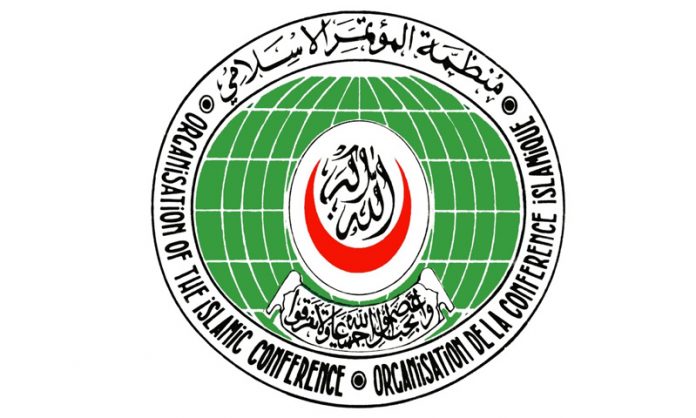UNITED NATIONS: Reaffirming their support to the Kashmiri people’s right of self-determination, foreign ministers of Islamic countries have called for the resolution of the decades-old Kashmir dispute between Pakistan and India.
At their annual coordination meeting, the foreign ministers of 57 member states of the Organization of Islamic Cooperation (OIC) adopted the reports of various OIC Contact Groups, including the one on Jammu & Kashmir, which also called on the Organization’s Independent Permanent Human Rights Commission to monitor the human rights situation in Kashmir and submit a report to the next session of the Council of Ministers.
The meeting, held on the sidelines of the 71st session of the U.N. General Assembly, was chaired by Sheikh Sabah Al-Khaled Al-Sabah, Foreign Minister of Kuwait and attended by Foreign Ministers of member states and Secretary-General of the OIC Iyad Ameen Madani.
Speaking at the meeting, the Adviser to the Prime Minister on Foreign Affairs, Sartaj Aziz, who led the Pakistan delegation to the meeting, referred to the broad-range of challenges confronting the Islamic Ummah, and briefed the meeting about the gross violations of human rights in Indian Occupied Jammu and Kashmir.
The Adviser regretted that the aggression of the Indian occupation forces took a new turn following the extra-judicial killing of the Kashmiri youth leader, Burhan Wani on 8th July 2016. As a result, over 100 innocent Kashmiris had lost their lives while thousands of Kashmiri men, women and children were injured, many seriously. The deliberate and indiscriminate use of pellet guns against Kashmiris had caused blindness to 150 youth.
The Adviser called on the international community to demand that the state-sponsored policies of suppression in Indian Occupied Kashmir are ceased, fundamental rights of the Kashmiris are respected and the UNSC resolutions providing Kashmiris their right to self-determination are implemented by India.
The Adviser also reaffirmed Pakistan unwavering support to the cause of Palestine, and restoration of peace and stability in the Middle East and Afghanistan.
The meeting underscored the need for greater cooperation between the OIC member states to combat terrorism and violent extremism, and to promote a culture of inter-religious and inter-cultural harmony and understanding.
The meeting inter-alia adopted the report of the OIC Contact Group on Jammu and Kashmir, calling upon the Independent Permanent Human Rights Commission, to monitor the human rights situation in Kashmir, and to submit a report to the next session of the Council of Ministers.
A delegation of the True Representatives of the Kashmiri People, also spoke on the occasion, and apprised the meeting of the latest situation in the occupied territory.
The President of Azad Jammu and Kashmir, Sardar Masood Khan, called on OIC Secretary General to impress upon the UN Secretary General and the President of the UN Security Council to address the grave and deteriorating situation in IOK and stem its serious implications for peace and security in South Asia.





